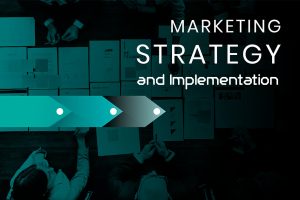Organization 101: A Comprehensive Guide to Effective Organization
In today’s fast-paced world, the ability to stay organized is a valuable skill that can significantly impact your personal, professional, and academic success. Effective organization goes beyond mere tidiness; it involves setting goals, managing time efficiently, decluttering your surroundings, and cultivating good habits. In this comprehensive guide, we will delve into the fundamental principles and practices of organization, providing you with step-by-step explanations to help you become more organized in every aspect of your life.
1: Setting Goals and Priorities
Description: Before embarking on any organizational journey, it’s crucial to have a clear sense of direction. This begins with setting goals and priorities to guide your efforts.
Explanation:
- SMART Goals: Start by defining Specific, Measurable, Achievable, Relevant, and Time-bound goals. This structured approach makes your objectives clear and attainable.
- Prioritization: Learn to discern which tasks or goals are most important and require immediate attention. Effective prioritization ensures that you focus your energy and resources on what truly matters.
2: Time Management
Description: Time is perhaps the most precious resource at our disposal. Effective organization involves managing your time wisely to maximize productivity and reduce stress.
Explanation:
- To-Do Lists: Begin by creating daily or weekly to-do lists. These lists help you outline your tasks and allocate time for each one.
- Time Blocking: Time blocking is the practice of allocating specific time blocks for different activities. It helps you maintain focus and minimizes distractions by ensuring that you are fully immersed in one task at a time.
- Time Management Tools: Make use of digital tools such as calendars and task management apps. These tools can help you schedule your time effectively and track your progress.
3: Decluttering and Simplifying
Description: Clutter can be a significant obstacle to organization. It not only impedes productivity but also creates stress. The art of organization involves decluttering and simplifying your environment.
Explanation:
- The Four-Box Method: When embarking on a decluttering mission, use four boxes or categories: Keep, Donate, Trash, and Unsure. This method helps you make quick and informed decisions about items.
- Minimalism: Embrace the principles of minimalism, which advocate owning only what you need and value. Let go of possessions that no longer serve a purpose in your life.
- Digital Declutter: Extend your organizational efforts to your digital life. This includes managing files, cleaning up your email inbox, and decluttering your digital workspace. A clutter-free digital environment enhances your efficiency and focus.
4: Effective Planning
Description: Planning is a cornerstone of organization. It allows you to anticipate tasks, allocate resources efficiently, and work methodically toward your goals.
Explanation:
- Weekly and Monthly Planning: Set aside time each week and month to plan your activities. This includes setting goals, scheduling appointments, and listing tasks to be completed.
- Project Planning: For larger tasks or projects, break them down into smaller, manageable steps. Assign deadlines to each step to ensure you stay on track.
- Long-Term Planning: Develop yearly or long-term plans that align with your broader objectives. These plans serve as roadmaps to guide your progress over an extended period.
5: Time-Saving Techniques
Description: Time-saving techniques are invaluable for optimizing your workflow and freeing up valuable time for other pursuits.
Explanation:
- Batching: Group similar tasks together and tackle them in one go. Batching minimizes context-switching and boosts efficiency.
- Automation: Take advantage of automation tools for repetitive tasks. Whether it’s setting up email filters or scheduling social media posts, automation can save you precious time.
- Outsourcing: Don’t hesitate to delegate tasks or responsibilities when possible. This could be in your personal life, such as hiring a house cleaner, or in your professional life by assigning tasks to team members or freelancers.
6: Effective Communication
Description: Organized communication is essential for clarity, efficiency, and fruitful interactions in both personal and professional contexts.
Explanation:
- Inbox Management: Keep your email inbox under control by regularly checking, responding to, and organizing messages. Unsubscribe from irrelevant newsletters and use filters to categorize and prioritize incoming emails.
- Active Listening: Effective communication involves active listening. Practice this skill to understand others better and respond more effectively in conversations.
- Clear Documentation: Document important information, agreements, and deadlines. This practice helps prevent misunderstandings and ensures that everyone involved is on the same page.
7: Space and Environment
Description: Your physical environment significantly affects your level of organization and productivity.
Explanation:
- Workspace Organization: Maintain an organized and clutter-free workspace. Ensure that your desk or workspace is clean, well-organized, and ergonomically designed to enhance your comfort and productivity.
- Home Organization: Extend your organizational principles to your living spaces. An organized home reduces stress and contributes to overall well-being.
- Digital Workspace: Organize your computer files, desktop, and digital tools. A well-organized digital workspace improves efficiency and helps you find what you need quickly.
8: Consistency and Habits
Description: The path to effective organization is paved with consistent habits.
Explanation:
- Daily Routines: Develop daily routines that include tasks like planning, organizing, and decluttering. Consistency in these routines cultivates good organizational habits.
- Accountability: Use habit-tracking apps, journals, or accountability partners to stay committed to your organizational goals.
- Adaptability: Be open to adjusting your organizational strategies as your needs change over time. Flexibility is a key attribute of effective organization.
Effective organization is a skill that can transform your life. By setting clear goals, managing your time efficiently, decluttering your environment, and cultivating good organizational habits, you can enhance your productivity, reduce stress, and achieve your personal and professional goals. Incorporate these principles and practices into your daily life, and watch as organization becomes second nature, leading to a more fulfilling and successful life.







